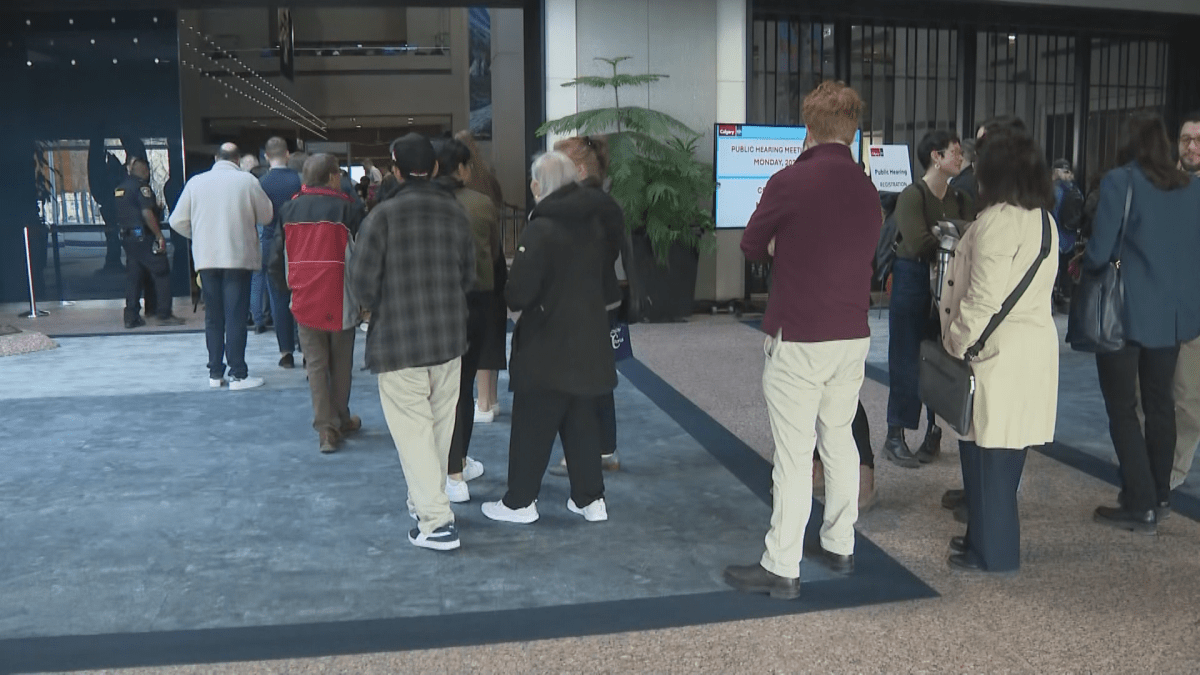The longest public hearing in Calgary’s history cost the city nearly $1.3 million, according to a report presented to the city’s executive committee on Tuesday.

The report comes following a motion during deliberations on citywide rezoning, which asked administration to bring a summary of the “cumulative budget, resource and workplan implications” stemming from the lengthy list of council amendments to the proposal.
The public hearing on citywide rezoning began on April 22 and wrapped on May 14 when city council voted 9 to 6 in favour of changing the city’s base residential zoning district to residential grade-oriented infill (R-CG), which allows for more housing types on a single property.
City council heard from 736 speakers over the marathon public hearing, which often saw 12-hour days on weekdays and multiple weekend sessions.
According to city administration, $945,000 was spent to prepare for the public hearing, including $590,000 on mailouts, $136,000 on advertising and promotion and $186,000 on overtime wages and salaries.
The report noted it cost $330,000 to hold the public hearing, which included $210,000 for overtime wages and salaries and $120,000 for “non-staff costs” like technical support, meetings and meals.
Ward 1 Coun. Sonya Sharp, who voted against citywide rezoning, raised concerns with the costs of the hearing.

Get daily National news
“I’m not happy with the price tag,” Sharp told reporters Tuesday. “A lot of money, considering a plebiscite added to the election I think is $50,000. Not great to see the price tag.”
- Danielle Smith says Alberta will withhold funding for judges without more input on selection
- Canada expects U.S. to stay out of domestic affairs: national security official
- Former prime minister Stephen Harper’s official portrait unveiled in Ottawa
- MP Nate Erskine-Smith ‘exploring’ Ontario Liberal leadership, seeks seat
However, Mayor Jyoti Gondek said the costs to conduct the public hearing on citywide rezoning were necessary.
“You can’t put a price on democracy,” Gondek said.
“We enabled, encouraged and allowed Calgarians to come forward and share their thoughts with us. They were able to express concerns that they had, they were able to talk about their experiences, and you can’t ask for a better environment for council to make a decision.”
City administration’s report suggests there are additional “preliminary costs” of $4.5 million to implement the 12 amendments city council added to the citywide rezoning decision during a multi-day debate following the hearing.
Those amendments include re-engaging the public on updates to already approved local area plans, improving engagement on R-CG developments and public education, a new community planner liaison program, exploring a reinstatement of the civic census program, and quarterly updates on progress.
“I think this is an ongoing conversation that we’re going to have to bring to budget,” Sharp said. “We’re going to have to find money in order to do this with all the other costs that are going to compound moving forward to November.”
Ward 7 Coun. Terry Wong, who also voted against citywide rezoning, said he plans to bring forward a motion that aims to explore what the city could have done differently on the issue and in the leadup to the marathon public hearing.
“If the engagement process had been much more, not just informative but consultative and collaborative, not only asking, ‘What do you think about the bylaw?’ but also, ‘Where are the areas of improvement and could the areas of improvement be addressed through amendments or alternative recommendations brought forward by administration?'” Wong said, “the four weeks of public hearings could have been much more efficient.”
Gondek suggested city administration should look at the city’s Housing Accelerator Fund agreement with the federal government to determine if any of the $228 million could be used to cover associated costs around the implementation of citywide rezoning and the related amendments.
Ward 8 Coun. Courtney Walcott added an amendment to council’s approval of Tuesday’s report directing administration to explore those agreements, which was supported unanimously by members of the committee.












Comments